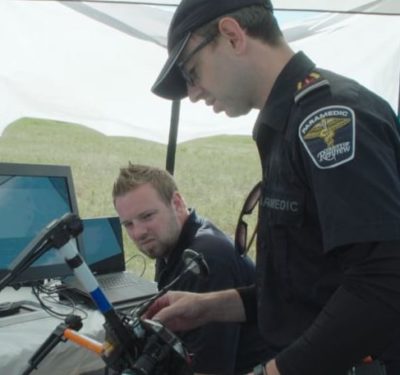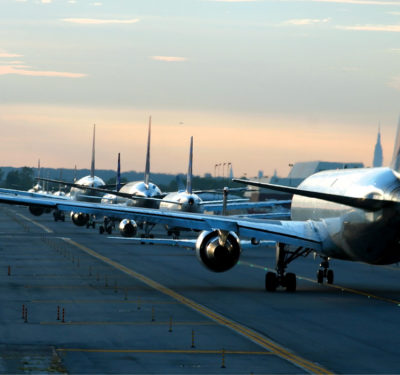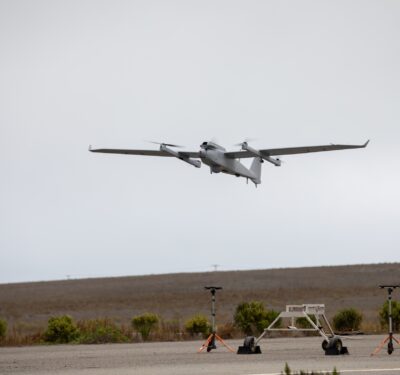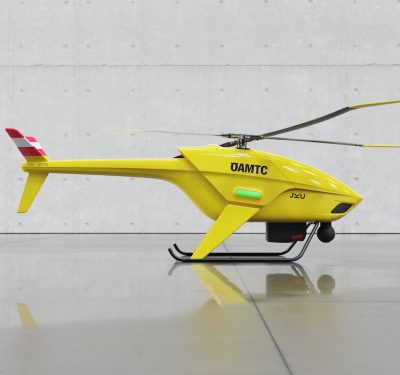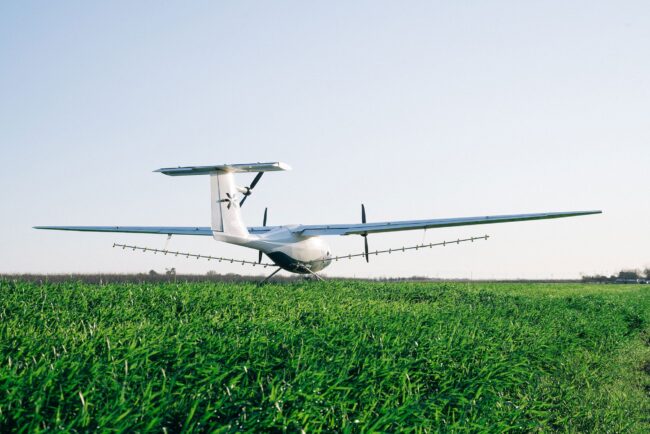
OAKLAND, California—Pyka, which builds large-scale, highly automated electric aircraft for crop protection and cargo transport, announced it has received approval from the FAA to operate its Pelican Spray aircraft for commercial crop dusting nationwide.
With a gross weight of 1,125 pounds, Pyka’s UAS is the largest to receive FAA authorization for commercial operation in the United States.
In conjunction with an agricultural aircraft operator certificate, this FAA approval will enable Pyka to begin bringing unparalleled safety, environmental and economic benefits to American farmers and the greater public, the company said.
In 2020 alone, the National Transportation Safety Board (NTSB reported 54 aircraft accidents involving agricultural operations, including 12 fatal accidents resulting in 13 deaths. The FAA’s action to authorize Pyka’s operations signifies the agency’s commitment to enabling larger and more advanced agricultural UAS operations that will save lives and advance American leadership in the $60 billion global drone market.
The move, announced Aug. 1, won praise on Aug. 2 from Brendan Groves, the vice president of regulatory and policy affairs at Skydio, who was speaking at the second day of the FAA Drone Symposium in Baltimore.
“This is really transformative, because crop dusting is difficult and dangerous,” he said, noting that the pilot workforce is aging and there aren’t many new entrants into that workforce.
“Pyka is really going to improve worker safety,” Groves said.
Pyka said American farmers and neighboring agricultural communities will benefit from a safer alternative to piloted spray aircraft, increased spray precision, reduced chemical use costs and minimized environmental impact. Pyka’s Pelican Spray aircraft is the world’s largest and most productive agricultural spray drone and is already operational on farms in Costa Rica, Honduras and Brazil. It can carry up to 540 pounds, or 70 gallons, of liquid and spray up to 240 acres per hour.
“We are beyond thrilled to celebrate this commercial approval and regulatory milestone,” said Pyka CEO Michael Norcia. “Pyka’s aircraft provide an essential tool for protecting crops, unlocking cost savings for growers, and reducing our impact on the environment. This commercial approval is the first step in enabling us to generate massive value for growers in the U.S., Latin America, and other markets we operate in, while also laying the operational and regulatory groundwork for eventual scaling into uncrewed cargo operations worldwide,” he said, emphasizing the word eventual.
Spraying at Night
In the fall of 2022, Pyka also won the first approval to fly unmanned spray missions at night in Costa Rica by the General Directorate of Civil Aviation. The systems are used there to spray commercial banana plantations.
For banana producers, spraying chemicals at night means better spray distribution and reduced risk of unintended chemical drift due to typically lower winds after sunset, while also increasing the spray window from about five hours to roughly 10 hours per day.


